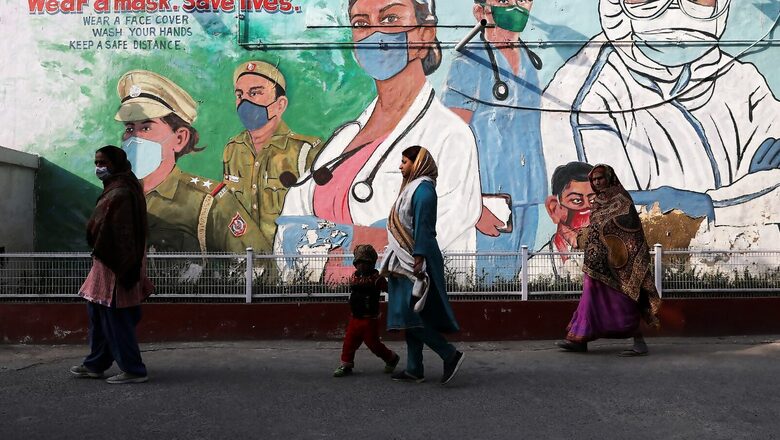
views
As the sudden spike in Covid-19 cases in China and other parts of the world sparks concern, experts said that the Omicron sub-variant driving the surge, BF.7, has been in circulation for nearly two years in over 90 countries.
91 countries have reported a variant matching the genetic make-up and mutation profile of BF.7 since February 2021, according to data released by the Scripps Research Institute. The variant was named BF.7 (also BA.5.2.1.7) and added to the BA.5 Omicron lineage in May 2022, a scientist of The Indian SARS-CoV-2 Genomics Consortium (INSACOG) told Times of India.
The renewed alarm over the sub-variant has baffled virologists, epidemiologists and infectious disease experts since the BF.7’s prevalence in sequenced samples had remained 0.5 per cent worldwide, a report by Times of India stated. The variant has been seen in only 47,881 sequenced patient samples worldwide since it was identified, an INSACOG official said.
“Despite its presence in several countries over the last 22 months, BF.7 has not contributed significantly to Covid-19 cases, compared to other simultaneously circulating Omicron sub-lineages such as XBB and BQ.1.1. Cumulative prevalence rate of BF.7 worldwide has been 0.5 per cent, which shows it has limited growth potential. So, the scaremongering is uncalled for,” a virologist involved with Insacog’s genome sequencing programme was quoted as saying.
While the XBB sub-variant of Omicron is dominant in India, found in over 73 per cent samples, the BA.5 itself also has low prevalence in India, being less than 5 per cent, the report said.
Several factors are contributing to the recent spike in China. “The surge in China can be explained as BF.7 circulating in a largely susceptible population that has had low rates of Covid infection. We also have to consider limited effectiveness of the vaccines being used in China, their low coverage, coupled with the sudden opening up from the zero-Covid policy,” a doctor told Times of India.
However, the ability of the virus to mutate and evolve further is a matter of concern, as per the report. “The larger concern is the ability of SARS-CoV-2 to evolve further, into a more immune evasive virus with the potential to cause severe illness among the vulnerable. The virus needs to be continuously monitored and preparedness plans need to be put in place,” a doctor said.
Meanwhile, co-chair at INSACOG’s advisory board Dr Saumitra Das told News18 on Thursday that India has already seen a few cases of the BF.7 strain and it did not lead to a surge in infections or an increase in the severity of the disease.
“We have seen at least one to two cases of BF.7 in India but there was no momentum or no threshold was breached. In the last three months, the number of cases has not gone up and there was nothing alarming.”
“The lineage was already present in India but it hasn’t shown any alarming trend. While precaution is always a good stand, there is no reason to be in panic mode,” said Das.
Read all the Latest India News here


















Comments
0 comment